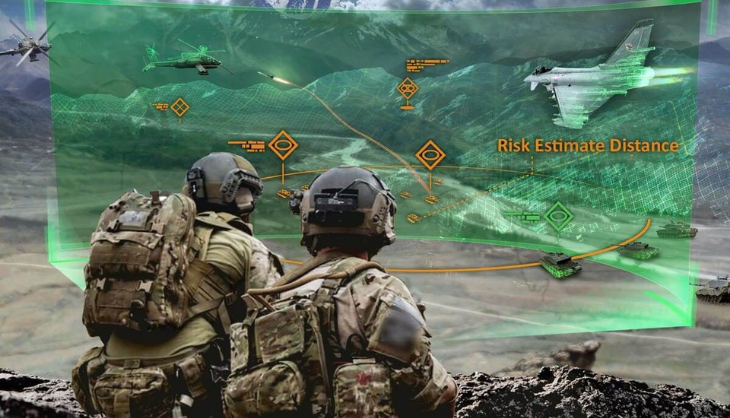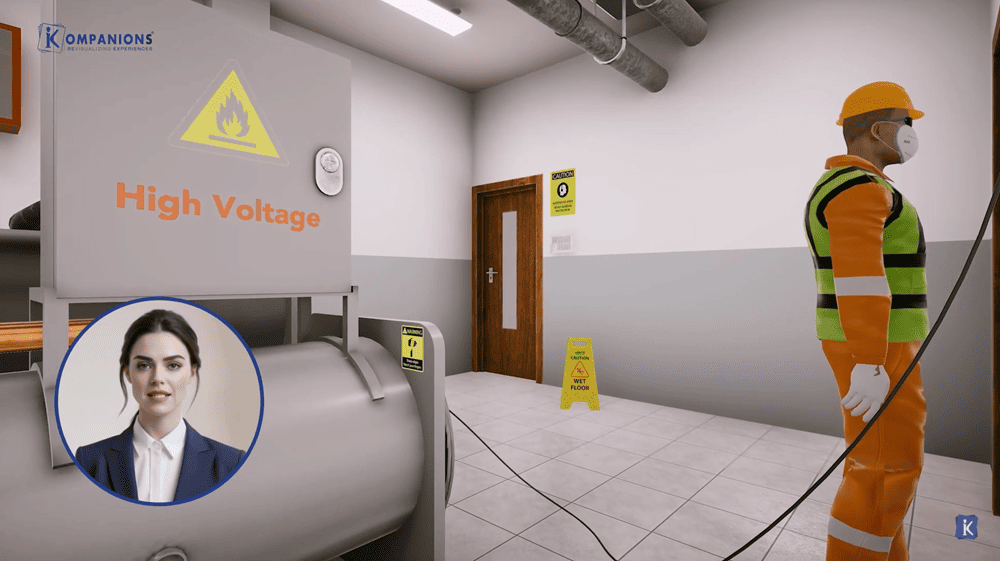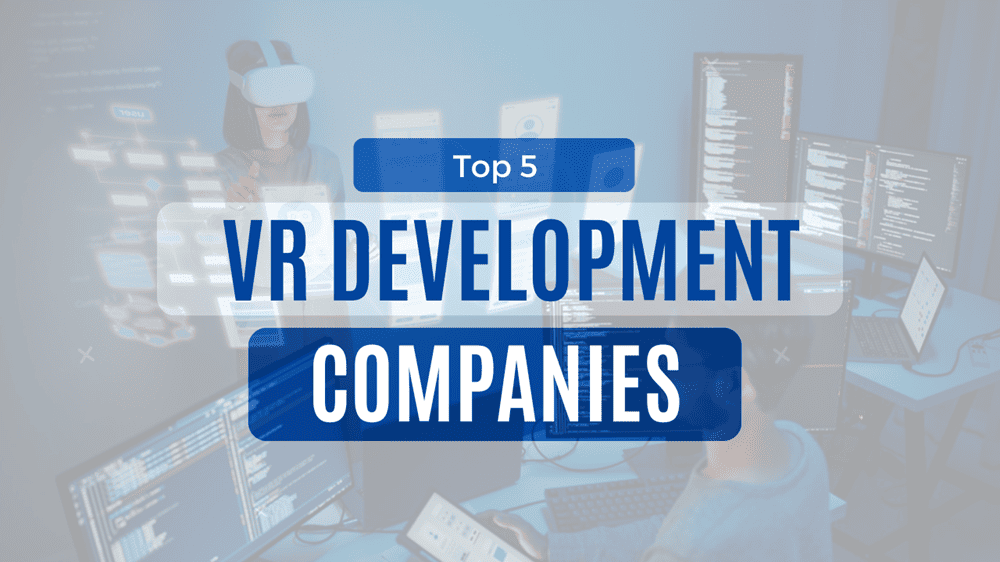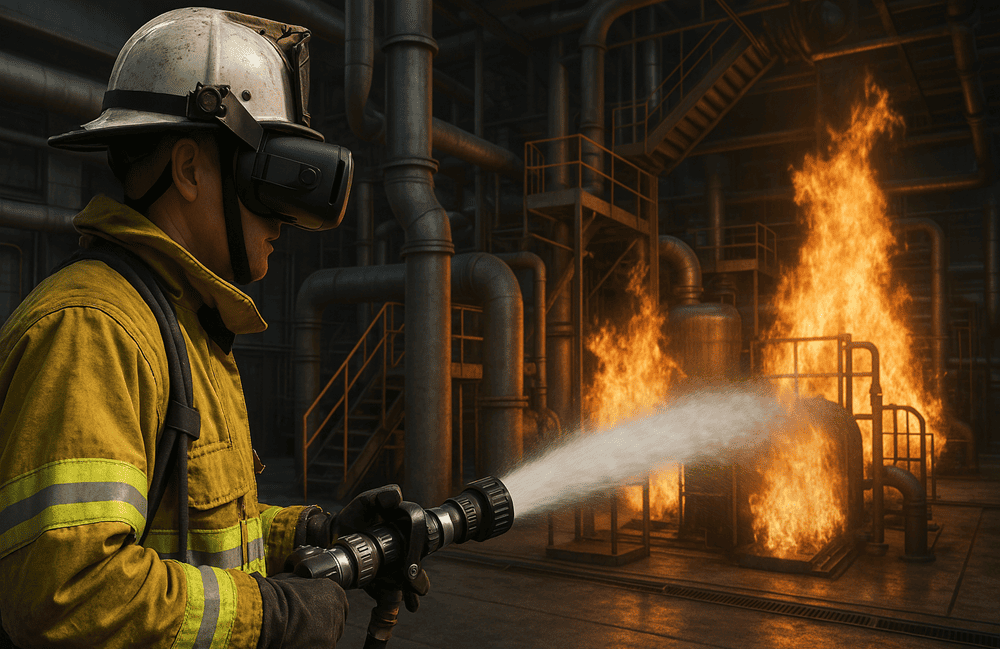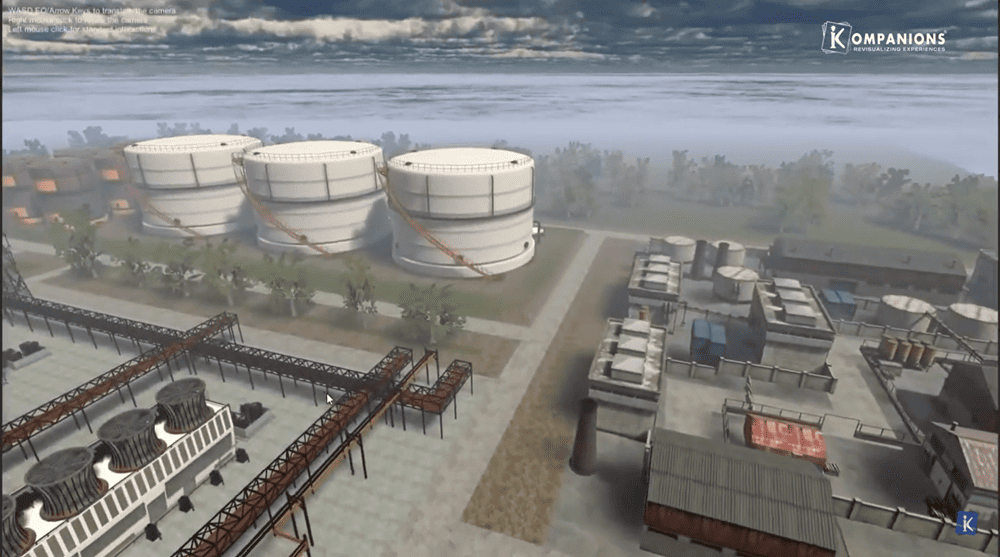Augmented and Virtual Reality in Military Training: Real Combat Without Real Risk
AR and VR-backed tactical military training will revolutionize how soldiers process data and instructions to execute operations in combat missions. The military also benefits from reduced training spending and lower soldier mortality rates.
Augmented Reality (AR) and Virtual Reality (VR) have ushered in a new world of learning across industries. Military training is no different when it comes to leveraging AR/VR in the defence sector.
However, their pivotal role in the military often goes under the radar. AR and VR-backed tactical military training is revolutionizing how soldiers process data and instructions to execute operations in combat missions. The military also benefits from reduced training spending and lower soldier mortality rates.
In this blog, we dive deep into the growing significance of Military VR and AR in the armed forces, exploring how they prepare for a new era of training and readiness.
But before everything else, we have the statistics to do the talking.
AR VR in Military Training Spending in the US & Global Market
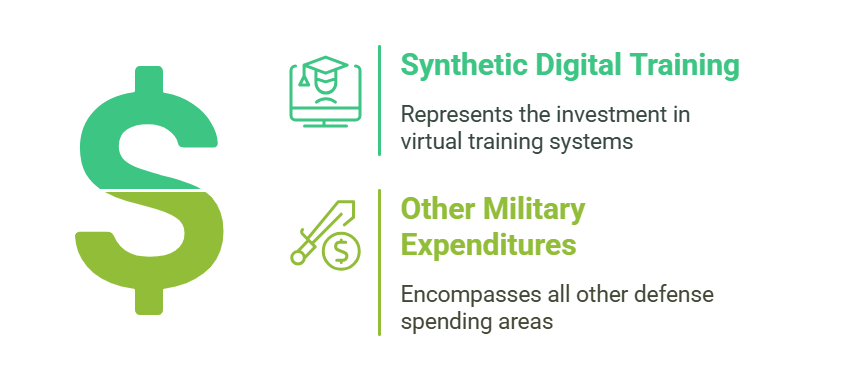
The US Defence Department spends around $14 billion annually on synthetic digital training, which amounts to 2% of the total US military spending in a year. (Deolitte)
The spending on VR is approximately
- $6.4 billion in the US
- $5.1 billion in the Asia Pacific region
- $3 billion in Europe, the Middle East, and Africa combined.
- The US Army has signed a US$21.88 billion deal with Microsoft for the supply of 120,000 plus HoloLens AR headset-based devices.
AR/VR in Military Training: Use Cases and Recent Developments
The integration of augmented and virtual reality in military training has moved beyond experimentation. It's now a core strategy in preparing modern defense forces.
From immersive combat simulations to VR for pilot flight training, and hands-on maintenance or medical drills, these technologies offer safer, scalable, and more effective ways to train. Below are key use cases and recent advancements shaping the future of military readiness.
1. Combat Simulations
Use Case: Virtual reality (VR) enables soldiers to engage in realistic combat scenarios within a controlled environment. This immersive training prepares them for high-stress situations like urban warfare and ambushes without the risks associated with live exercises.
Recent Development: Ukrainian forces are utilizing advanced VR simulators to train with weapons such as the M2 Browning machine gun and FIM-92 Stinger. These simulations replicate real combat conditions, enhancing muscle memory and tactical skills.
2. Maintenance Training
Use Case: Augmented reality (AR) provides technicians with real-time, step-by-step instructions overlaid onto equipment, facilitating efficient and accurate maintenance procedures. This technology reduces errors and accelerates training for complex systems.
Recent Development: The U.S. Air Force employs the Manifest® AR platform for jet engine maintenance training. Studies indicate that technicians using Manifest® made 53% fewer errors compared to traditional methods.
3. Medical Training
Use Case: VR offers medical personnel immersive simulations to practice procedures and decision-making in high-pressure environments. This training enhances readiness for real-world medical emergencies on the battlefield.
Recent Development: At Ellsworth Air Force Base, 84% of Airmen reported improved medical skills after participating in VR training programs, highlighting the effectiveness of VR in medical preparedness.
Applications of AR/VR in Military Training
The defense and military sectors were among the first to understand and deploy AR and VR technologies and have integrated them as strategic military training tools.
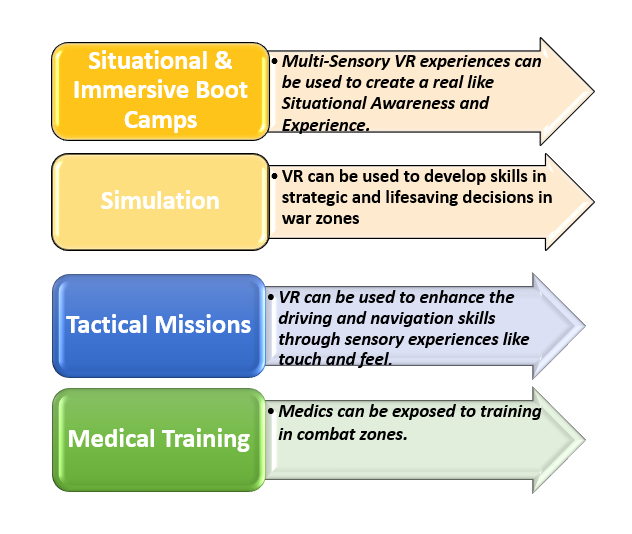
1. Situational and Immersive Boot Camp Experiences
Multi-sensory VR experiences can create a digital training environment for Situational Awareness and Experience.
Soldiers are exposed to harsh environments, rugged terrains, and activities with the use of multi-sensory virtual reality experiences that offer locational and combative context and prepare them for any war-like situation.
The Benefit
AR and VR deployment in military boot camp training showcases operations in hostile areas like jungle interiors, snow-covered mountains, rivers, oceans, deserts, and even the skies. It teaches soldiers critical skills like teamwork, survival, and adaptability.
Also read: Potential of Virtual Reality in Aviation and Aerospace Industry
2. Developing Strategies for Tactical Missions
VR can be used to develop skills in strategic and lifesaving decisions in war zones.
Multi-user combat system networks are critical to a successful mission. AR and VR replicate such situations in a virtual environment and allow military commanders to develop real-time collaboration and strategic thought skills in critical missions.
The Benefit
Helps foster leadership traits, teamwork, collaboration, and the ability to execute with the presence of mind.
3. Vehicle and Flight Simulations
VR can be used to enhance driving and navigation skills through sensory experiences like touch and feel.
VR can be effectively applied to vehicle and flight simulations to train soldiers in handling fighter planes, submarines, and ground vehicles, without even stepping into one and yet equip them with better driving, flying, and navigation skills.
VR training enables even sensory experiences. Trainees can experience the disorientation of parachuting off an aircraft or even the closed and cramped conditions of armored vehicles. VE-enabled sense of touch allows pilots to touch and feel switches and controls in the cockpit.
The Benefit
The innovative immersive training module exposes the trainees to actual activities to develop better driving and navigation abilities.
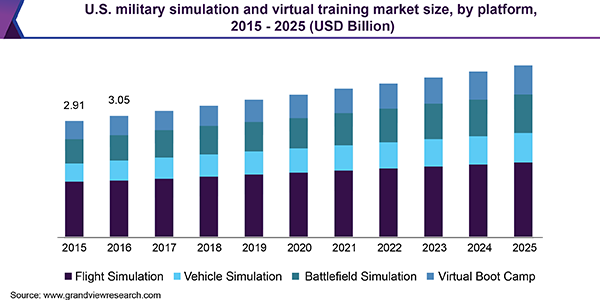
4. Medical Applications in Military Training
Medics are exposed to training in combat zones.
In the traditional setup, medics were not trained in field conditions. But, with VR, doctors can be thrust into war-like zones, where they can hone and develop skills in hostile conditions. VR can also be used to treat anxiety symptoms in recruits or PTSD in soldiers.
The Benefit
Medics under training can now gain a level of expertise and insight into field-like conditions, making them battle-ready.
VR can offer an immersive, authentic experience, like none other, at a lesser cost and imparts valuable lessons in teamwork, critical mission strategies, and survival skills.
Revolutionize military training with AR and VR! Explore how cutting-edge tech enhances combat readiness, strategy, and soldier safety.
Contact UsExpenses vs. Benefits
VR allows military personnel to undertake a vast range of simulations without the associated costs, thus massively reducing training budgets.
There is enormous potential to scale up training in the defense sector that requires cutting-edge precision and practical training. The application of VR in military training can produce soldiers who are better prepared psychologically and strategically.
- Cost-Effective: Reduces costs associated with sending trainees to various locations for training.
- Time-Saving and Efficient: On-site, on-demand customized training enables a greater outreach in a shorter period
- Connects Instantly: The current generation consumes digital content more easily
- Comprehensive Learning and Safer: Immersive, 360-degree situations offer life-like combat experiences which boost critical skill development and provide a safe training environment.
Concerns and Solutions
Some have raised concerns about using virtual reality as a defense. The chart below encapsulates the key considerations and possible solutions to encourage a more open-minded approach to VR adoption.
Traditional vs. VR Training in the Military: What’s the Difference?
Training military personnel requires precision, repetition, and realism. Traditional methods, while valuable but fall short in replicating the unpredictability of real-world scenarios. That’s where virtual reality steps in. Here’s a quick comparison to understand how VR training enhances outcomes over conventional approaches.
| Aspect | Traditional Training | VR Training |
|---|---|---|
| Engagement | Passive learning through lectures or static drills | Immersive, interactive, scenario-based learning |
| Retention | Average retention of 20–30% | Retention as high as 75–80% due to experiential learning |
| Safety | Risk of injury in live drills or physical environments | 100% safe, simulated environments for repeat practice |
| Cost | High recurring costs for ammo, transport, and logistics | One-time investment with scalable digital access |
| Feedback & Assessment | Manual observation and post-training reviews | Real-time data tracking, instant performance feedback |
The Scope of AR and VR in Military Training
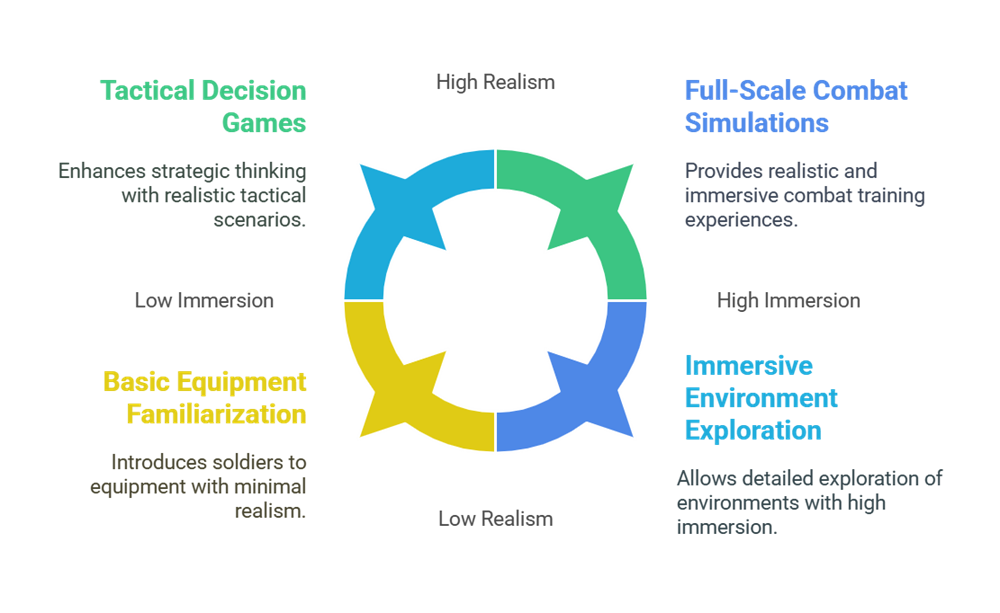
The inclination of the armies to incorporate AR and VR in military training finds resonance with the data estimates of the AR market for the military sector, which is estimated to reach US$ 1,797.5 million by the end of 2025.
AR and VR in military training offer lifelike simulations for a wide range of training needs. They can help armies worldwide build safer ecosystems for soldiers while ensuring mission success.
At the epicenter of these technological advancements and simulation-led reforms is KOMPANIONS. A leading industrial AR/VR company with cutting-edge technology and unmatched experience, we are constantly innovating VR practices in military training.

